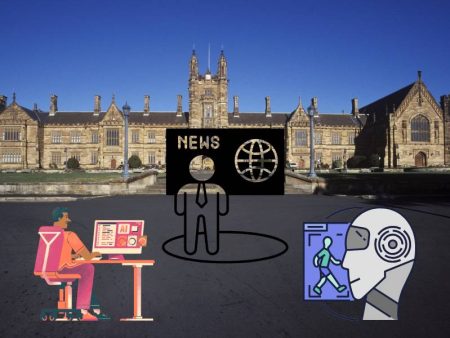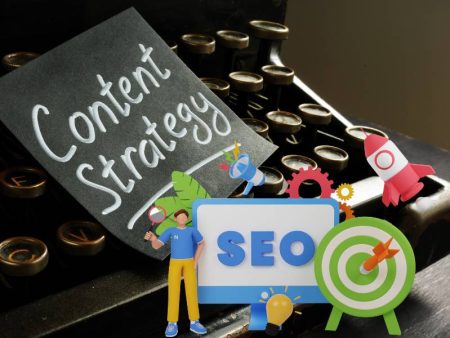You know that scene in every futuristic movie where the humans glance at the sleek machines and nervously sip their coffee like, “Is this thing gonna take my job?” Yeah, welcome to that moment—but for writers.
Except… the coffee’s real, and the threat? Eh. A bit overhyped.
Let’s talk about AI copywriting. No, not the “robots are coming” panic-fest, but the honest, messy, slightly awkward truth of it all—especially if you’re a freelancer or run a creative agency.
Spoiler: it’s not the end. But it is a shakeup.
A Quick Scroll Back: What Even Is AI Copywriting?
Okay, before we dive headfirst into emotional whirlpools and existential career questions, let’s keep it simple.
AI copywriting is what happens when language models (like the infamous GPTs of the world) are trained on a ridiculous amount of text and then asked to… write stuff. From product descriptions and ad copy to blogs and email sequences, these tools crank out content in minutes. Sometimes seconds.
Magic? Almost.
Terrifying? Not really.
But powerful? Absolutely. An AI Writing Assistant today can whip up a decent draft of something that used to take an intern hours.
So what does that mean for people whose careers depend on words?
Let’s be real about it.
Freelancers: Panic? Nah. But Adapt? Yes.
Here’s the tea: if you’re a freelance writer and you’ve felt that weird pit in your stomach lately… I get it. AI isn’t just in the room—it’s trying to write the pitch before you do.
But here’s the thing: clients still want YOU.
They want your judgment. Your wit. Your ability to read between the lines of a brief that says “friendly tone” and somehow know that what they really want is “Ted Lasso energy with a little bite.”
AI doesn’t do that. Yet.
If you’re just churning out copy by the pound, yeah—you might be undercut soon. But if you’re crafting narratives, building brand voices, and weaving stories that feel real? You’re golden.
You just need to be smarter about how you use your time.
Agencies: The Game Just Changed
Now let’s talk agencies.
The ones juggling 12 clients, 7 platforms, 3 brand guides, and a designer who refuses to name their files properly (come on, “finalFINALv2.png”? Again?!).
AI is a gift here.
Need content fast for A/B testing? Done.
Have to spin 30 meta descriptions in two hours? Easy.
Want to outline six blog posts before lunch? Boom. Thank you, machine friend.
But here’s the catch—clients don’t pay for volume. They pay for results. So if your agency leans heavily on output without strategy, you’re in the danger zone.
On the flip side? If you embrace AI as your assistant—not your replacement—you can free up your writers for what they do best: actual storytelling. That’s where the magic (and the money) is.
Let’s Get Personal for a Sec
I’ve been writing professionally for over a decade. I’ve pitched, ghostwritten, blogged, scripted… you name it. So when AI started popping up, I’ll be honest—I rolled my eyes so hard I saw my own brain.
“Sure,” I thought. “Like a robot can write like this.”
But then, curiosity got the better of me. I tested a few tools. Some of them sucked. But some? Weirdly good. Like, oh-this-could-definitely-write-a-LinkedIn-post good.
That was humbling.
But also freeing.
Because I realized: if I don’t have to waste 30 minutes on the rough draft, I can spend that energy making it brilliant. Punchier. More me. That’s where AI is an accelerator, not a threat.
The New Role of the Writer: Less Typist, More Strategist
Here’s what nobody tells you: AI is making good writers better, and lazy writers irrelevant.
Let’s say it again for the folks in the back:
AI won’t replace good copywriters. It’ll replace copywriters who don’t evolve.
The writers who think their job is just “putting words on a page” are the ones sweating. But the ones who see themselves as brand architects, message sculptors, emotion whisperers? They’re thriving.
It’s less about typing speed and more about creative judgment. Strategic clarity. Voice tuning. Real connection.
Think of it like this: AI can write “10% off all shoes this weekend.”
But you can write, “Walk into the weekend like you own it. 👟”
One’s information. The other’s persuasion.
See the difference?
Freelancers, Here’s How You Stay Ahead:
- Learn the damn tools.
Don’t shun AI. Use it. Master it. Know when it’s helpful and when it’s just filler. - Double down on your niche.
AI writes general content well. But niche expertise? That’s where you shine. Tech? Wellness? Education? Own it. - Sell strategy, not just syntax.
Don’t market yourself as “a writer.” Be a conversion copywriter. A brand storyteller. A UX writer. Make your role matter. - Get good at editing AI output.
That means sharpening dull lines, spotting awkward phrasing, and humanizing robotic tone. If you can elevate AI content fast, you’re gold.
Agencies, This One’s for You:
- Build hybrid teams.
Pair AI tools with senior writers. Let tech do the heavy lifting and humans add the magic. - Train your clients.
Help them understand what AI can and can’t do. Set boundaries. Show them why your strategy still leads. - Audit your content systems.
If your process hasn’t changed in two years, it’s time. Automate the low-stakes stuff. Reinvest in the big, creative work. - Hire writers who think, not just write.
The best creatives in this new era know how to brief AI, guide tone, and translate data into delight.
And Let’s Talk About Empathy (Because We Should)
Here’s what AI still can’t replicate:
That moment when you write something, then backspace it… not because it was wrong, but because it didn’t feel right.
It’s the gut check. The conscience. The emotional nuance that says, “This sounds on-brand, but is it kind?” Or, “Will this make someone smile at 2am while doom-scrolling?”
An algorithm can’t do that. But you can.
And that matters more than you think.
So… What Does the Future Look Like?
Look, AI’s here to stay. It’s already embedded in every part of the content ecosystem, whether you like it or not.
But here’s the beautiful twist:
This rise of AI? It’s making copywriting more human. Not less.
Because now, people don’t just want words. They want resonance. They want voices that feel real. They want storytelling with a pulse, a personality, a purpose.
And no machine—no matter how smart—can replace your lived experiences, your intuition, your human weirdness. That’s your edge.
That’s your job security.
TL;DR (Because, Well… Mobile Users)
- AI is fast, smart, and shockingly competent at writing “okay” content
- But “okay” doesn’t convert. You do.
- Use an AI Writing Assistant to speed up the boring stuff
- Focus your time and energy on strategy, storytelling, and nuance
- Don’t fear AI—collaborate with it
- Writers who evolve will thrive. The rest? Eh, maybe start that food truck?
Final thought?
The rise of AI isn’t the death of creativity. It’s a chance to level up. To stop typing like a machine and start writing like a human again.
Let the bots help with the heavy lifting. You? You go build something unforgettable.


